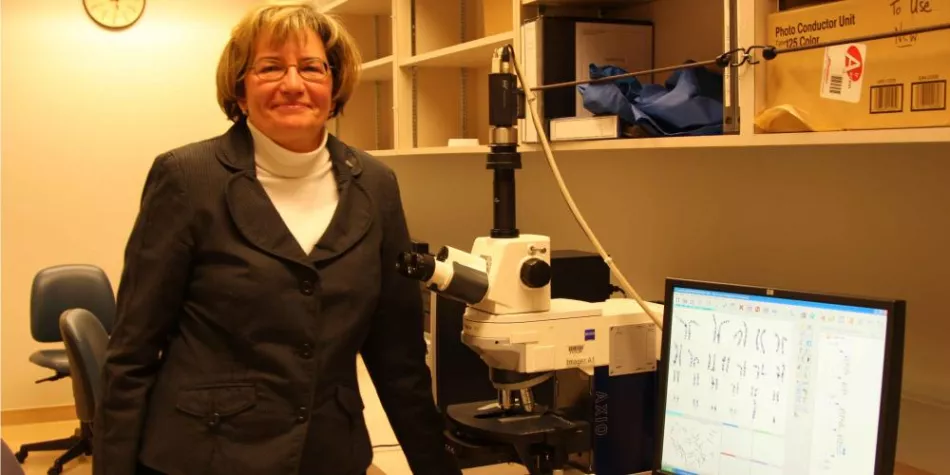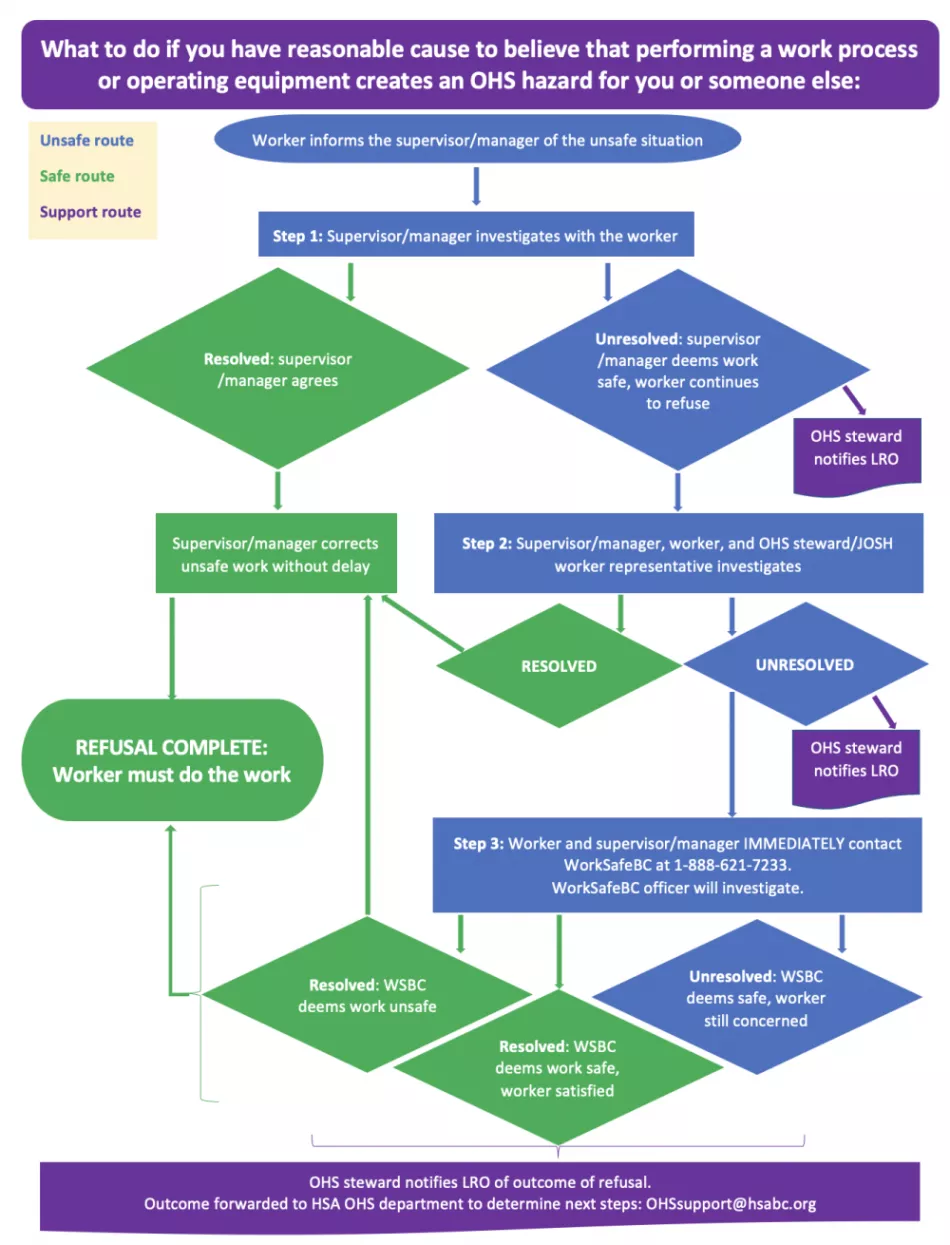Occupational Health and Safety

A safe and healthy workplace
As a member of HSA, you've got access to experts who can help ensure you can do your job free from fear of injury, exposure to harmful materials or having to do something that isn't safe.
HSA conducts regular OHS training for stewards — check our events page if you'd like to find out how to attend the next one.
Contact HSA with any questions you have about safety in your workplace by contacting your steward or getting in touch with HSA's office.
SWITCH BC (Safety, Wellbeing, Innovation, Training and Collaboration in Healthcare) is a new organization focused on the health, safety, and wellbeing of everyone working in healthcare in B.C. Their unique organizational model is a collaboration of unions, physicians and employers working to support province wide innovation, prevention and training, and enhancing the culture of safety in all healthcare workplaces in B.C. Learn more by visiting the website at switchbc.ca
CSSHSA (Community Social Services Health and Safety Association of BC) was created in response to an identified need for a health and safety association to address the complex and diverse health and safety challenges in the community social services sector. The Association engages with the Community Social Services sector (both union and non-union employers, as well as union and non-union employees and their respective unions) to implement best practices on health and safety. Learn more by visiting the website at csshsa.ca
Your Right to Refuse Unsafe Work

Examples of when to consider using your right to refuse:
- When you have been directed to perform a task that you have not been adequately trained to perform.
- When you have been directed to perform a task that requires a level of personal protective equipment as determined by performing a Point of Care Risk assessment, and you are delayed or denied the PPE.
- When you have reason to believe that performing a work process or operating a tool, appliance or equipment could cause psychological or physical harm to yourself or others.
Remember:
The right to refuse unsafe work is a right and duty under the Occupational Health and Safety regulation section 3.12. It is activated by notifying your supervisor or manager that you are refusing the work.
The refusal is based on your judgement, experience, and knowledge — this includes what you do not know. Although you should provide your supervisor/manager with the information that you based your decision on, you do not have to "prove" your concerns, rather the employer must follow the steps and investigate your concerns.
This is a personal right: you must refuse for yourself. Others cannot refuse for you, and you cannot refuse for others.
You cannot be disciplined or otherwise penalized for refusing unsafe work, even if a WorkSafeBC officer deems the work safe at the end of the refusal process.
Once a WorkSafeBC officer deems the work to be safe, the formal refusal process is complete, and you must do the work in question. However, if you still believe the work is unsafe, please contact the HSA OHS department as soon as possible. This can be done through your lead steward to the HSA labour relations officer, or directly to the OHS department by emailing @email.
More Resources
What to do if you are injured or sick
Occupational health and safety frequently asked questions (FAQs)
Bulletins and OHS news
Other OHS training opportunities
Awards and recognition for HSA members
- David Bland Memorial Award - description and recipients
- David Bland Memorial Award - application form
Ergonomic safety for sonographers
- Best Practices for Diagnostic Medical Sonographers: Understanding and Minimizing Risk of Musculoskeletal Injury: HSA worked with WorkSafeBC to develop this important study on reducing injury among diagnostic medical sonographers.
Other resources
- Preventing Violence in Community Social Services: A Review and Survey in British Columbia: Summary report for the Joint Committee on Preventing Violence in the Workplace by Barton A. Jessup, Ph.D., R.Psych.
- Disability Management
- OH&S organizations and resources